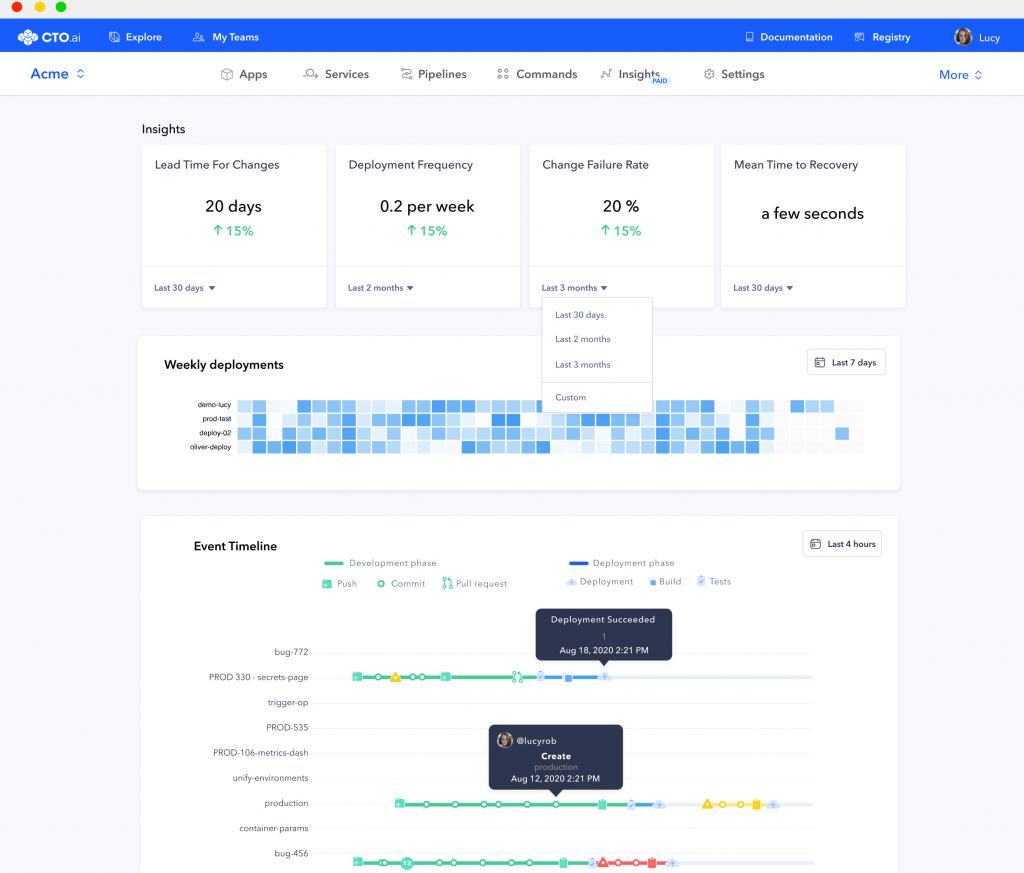CTO.ai Aims to Simplify App Dev on Kubernetes
CTO.ai today is launching a namesake platform that simplifies building and deploying applications in Kubernetes environments.
Kyle Campbell, CEO of CTO.ai says the primary purpose of Kubernetes is to provide an underlying platform on which more accessible platforms can be built. The CTO.ai platform layers a data and control plane on top of Kubernetes application programming interfaces (APIs) that enables building and deploying applications using frameworks that most developers already use, Campbell says.
Campbell says CTO.ai provides developers with a serverless computing experience, through which additional resources become available to applications as needed, without having subject matter expertise in container orchestration. In effect, CTO.ai provides developers with a platform-as-a-service (PaaS) environment, regardless of whether developers are building and deploying monolithic or microservices-based applications, Campbell adds.
The CTO.ai platform enables developers to manage continuous integration/continuous delivery (CI/CD), staging and production systems on top of a shared Kubernetes cluster. CTO.ai also makes available a service mesh, based on Kuma, to both manage the platform and enable compute tasks to be offloaded to a public cloud service. It also monitors delivery workflow metrics to surface insights that help optimize planning and resource consumption, Campbell says.
Of course, CTO.ai is not the only provider of a PaaS environment layered on top of Kubernetes. The goal, in CTO.ai’s case, is to provide a platform that is managed and updated remotely in an on-premises IT environment on behalf of developers versus requiring an internal IT team to stand up and maintain a PaaS environment, says Campbell.
The first application deployed using the CTO.ai platform is free, including hosting for the CI/CD pipeline, as well as GitOps and ChatOps workflows. As deployments scale, services for managed application deployments are $19 per service per month. Pipelines to build, test and release with CI/CD are $14 per service per month; custom GitOp and SlackOps workflows are $7 per service per month. Data insights to measure delivery across all tools is priced at $99 per team per month. Free support is available via Slack or email.
It’s not clear whether application development and deployment is limiting Kubernetes adoption. There are roughly three million developers building containerized applications, to varying degrees, today. The total population of developers, however, is several orders of magnitude greater. Many of those developers are not especially inclined to learn new tools and processes, no matter how much more productive their organization may become. Many of those developers simply don’t have the programming expertise needed to work within the context of anything other than a very high-level application development framework.
Regardless of how applications are constructed and deployed, it’s apparent that Kubernetes provides a crucial mechanism for enabling those applications to scale up and down, as needed. Now, the challenge is finding a way to make the inherent power of the Kubernetes platform readily accessible to developers, no matter their skill level.





